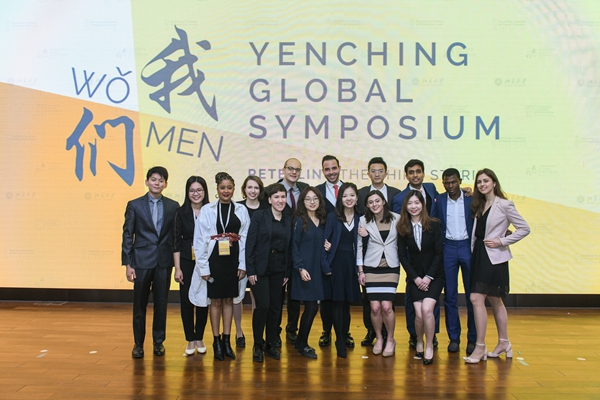Good morning everyone. My name is Zoe Jordan and I am Co-Chair of the 2019 YGS Executive Committee. On behalf of the entire Committee, I am thrilled to welcome you to the 2019 Yenching Global Symposium, Wǒmen: Retelling the China Stories. Welcome to the Yenching Academy, welcome to Peking University, and finally, welcome to Beijing.
For many, this is your first time in China. For others, you call Beijing home. Whether this is your first experience on Beida's historic campus, or you're joining us from your dorm room two minutes away, I want to welcome each and every one of you to this year's symposium. Since 2016, YGS has brought young people together here at the Yenching Academy to discuss the most pressing issues facing China and China's connections with the world. Year after year, YGS has facilitated a community of thoughtful, driven, and creative individuals dedicated to furthering discourse on China.
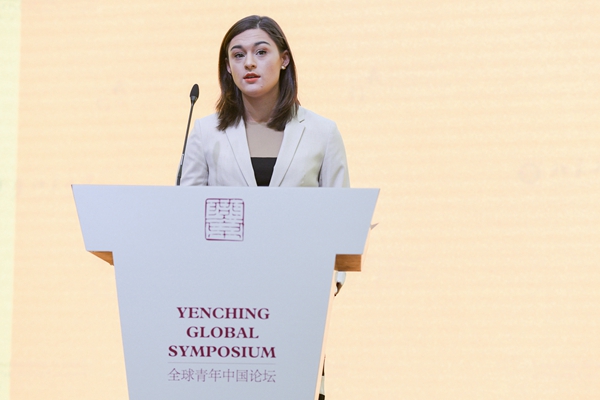
Centered on a distinct theme each year, YGS has built off of its predecessors in its conceptual growth. In its first three years, YGS discussed China's growing presence on the world stage, China's capacity for innovation, and China's current renaissance. This year, we have chosen a more specific, but equally rish, point of entry into the study of China. I would like to take a few minutes to describe this year's theme as our Committee envisions it.
First and foremost, Wǒmen: Retelling the China Stories is a conference on China. But,going one step further our line of inquiry on China begins with gender as our point of entry. In other words, this conference takes the notion of gender to frame the questions we ask about China's economics, development, politics, law, society, culture, and everything in between.Wǒmen: Retelling the China stories is interdisciplinar. It is both academic and practical, and critical. It is broad in that it explores China from all angles, but specific in that we will take the notion of gender to begin that exploration.
So, throughout these next three days we will discuss the most pressing issues related to contemporary China. These topics include China's judicial system, its diplomacy abroad, its urban-rural divide, its development projects, and even its science fiction literature scene. These, you might say, constitute the “China stories” that you know. These familiar China stories discuss the Belt and Road Initiative, China's political rise, traditional Confucianism, China's rich history, and her exciting trajectories.
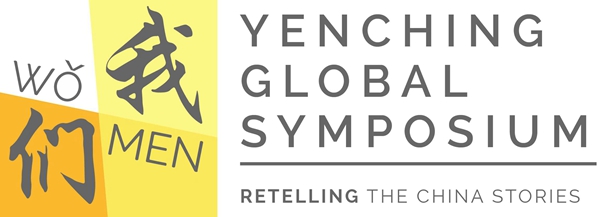
But, the China stories we want to tell, examine, and question all begin with the premise of gender. The stories we want to tell don't always take gender as the conclusion. Instead, we understand gender as a premise through which we ask larger questions about the complex ecosystem that is modern China.
For example, the stories we want to tell start not by asking ‘which women in China are dominating the tech industry,’ Instead, we start with the question, ‘how is emerging technology in China producing gender biases?’ The questions we want to explore don't ask, “What does Confucianism say about gender roles?” Rather, we ask “How does the thought structure traditional Confucianism change when analyzed through a feminist critique?” By analyzing these “China stories” through a gendered lens, we are not only looking at the stories themselves, but also why and how these stories came to be. We hope that this line of questioning -- rooted in gender -- leaves you with a richer, more nuanced, and more varied understanding of China than the one you came here with.
So why have we chosen ‘gender,’ out of all things, as our entry point into inquiry on modern China? Allow me to share with you some of the thoughts and discussion behind our team's arrival at this theme. Since September, the 16 people sitting here in the front row have been working with immense dedication and consideration to provide a space for impactful discussion. I would like to tell you a bit about the path our team has taken to arrive here today.
When planning this year's conference, we began with a certain set of imperatives. First, we wanted the symposium to not only be a place to discuss China generally, but to zoom into certain aspects of modern China. And we asked ourselves, when historians look back on this era-- the trends that define the zeitgeist of our time-- what will they write about? We believe that in China specifically and the world at large, issues of gender will define this era. Thus in positioning gender at the basis of our questioning, YGS becomes a space not only to discuss the pressing questions of today's China, but also define the questions that people will be asking for years to come.
In this way, YGS situates itself within a larger global movement, understanding that the social, political, and economic changes of our time largely begin with gender. We believe that gender is not just relevant to the few disciplines of women's, feminist, or gender studies, but fundamentally underpins the changing phenomena we observe on both an individual and societal level. Gender acts as a channel to tell not only one story of women in China, but the countless stories of China from all its angles. We hope that by exchanging these stories throughout the next few days, each and every one of you will return home with a new ‘story’ of China. More importantly, we hope that you use these stories to set the agenda for those in your communities thinking and working on China.
In fact, planning a conference that meets these lofty goals has been quite a challenge. To start, we are working with extremes. As I said earlier, many of you have never been to China before. Some of you have PhDs in China studies, and others were born and raised here. Some of you are experts in a particular field, seeking to understand China's impact in your given industry, while others are regional specialists hoping to gain insight on a specific discipline. How, then, do we bring all of you together to engage in meaningful discussion? And how do we create a conference that allows each and every one of you to discover something new, ask trailblazing questions, and contribute your knowledge to the wider community?
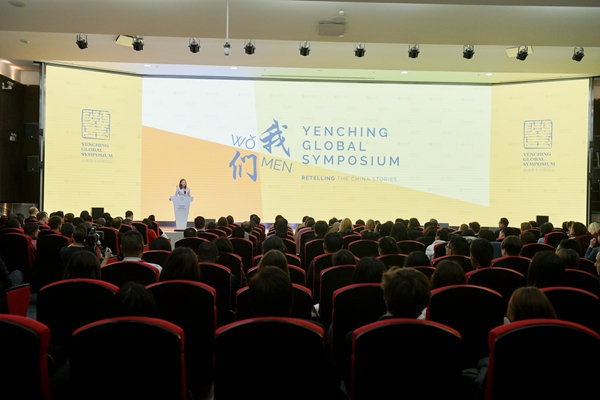
To start, we have brought in over 35 speakers from 9 different countries. Many of them are sitting among us this morning, and we thank them for dedicating their time to making YGS as a diverse and exciting as it is.
They are academics and practitioners, all experts in their fields, to shape and guide our discussions. We invited many speakers who specialize in gender specifically, many who specialize in China broadly, and most who are somewhere in between. These speakers will shape the questions that you as delegates will ask throughout the conference. We hope that you engage with them beyond their panels and lectures, and also challenge their notions with your own background and perspectives.
Second, we have given you options that allow you to individualize your experience here at YGS. Although our programming is separated into three large sub-themes - economics & development, politics & law, and society & culture - you may choose the lectures and panels you attend for each session. Because you all come with your own set of knowledge and experiences, we hope that you select events that build off your own backgrounds while challenging you to discover something new.
Finally, we have packed your three days here completely full with lectures, panels, cultural workshops, presentations by your fellow delegates, and a site visit into Beijing's hutongs. We hope that through listening, speaking, and experiencing Beijing (and Peking University), you will leave YGS exhausted, but also exposed to the widest assortment of China stories. YGS is not only an academic conference. So,through these immersive activities, we hope you come to new conclusions about China through your own experiences in the city, in conversation with our speakers, and most importantly, with each other.
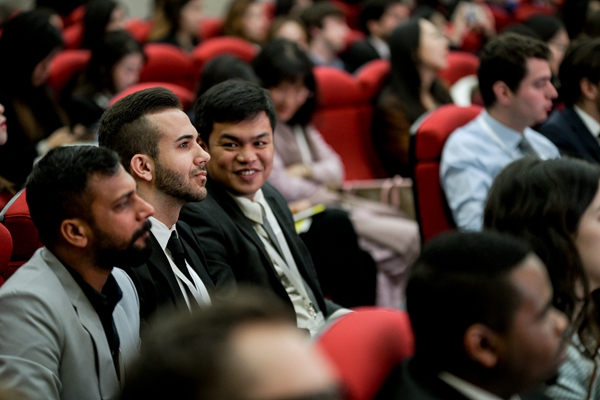
At the end of the day, this conference is about its delegates. The core of YGS is you, our delegates, who have come from over 60 different countries to join us in our special community that is the Yenching Academy. Each delegate sitting here today was selected out of an applicant pool of over 5,600 because you have something unique and important to contribute. For that, I sincerely thank you all for joining us this weekend. I hope that you engage with each other, dive into the pursuit of broadening the conversation on China, and enthusiastically join our YCA family, to which we welcome you with open arms. If there is one thing that you take away this weekend, we hope that that you discover a story about China that you did not know before. I believe that by examining China from a gendered lens, you might discover that story. So thank you all again for being here with us this weekend, and I am delighted to have the privilege to welcome you to YGS 2019. Thank you.
Now, I would like to introduce a woman who can tell you more about the Yenching Academy, and probably more about China's transformation over the past few decades, than anyone here. Dean Yuan Ming to speak about YCA, YGS, and her China Story. Please welcome Dean Yuan Ming. . .
